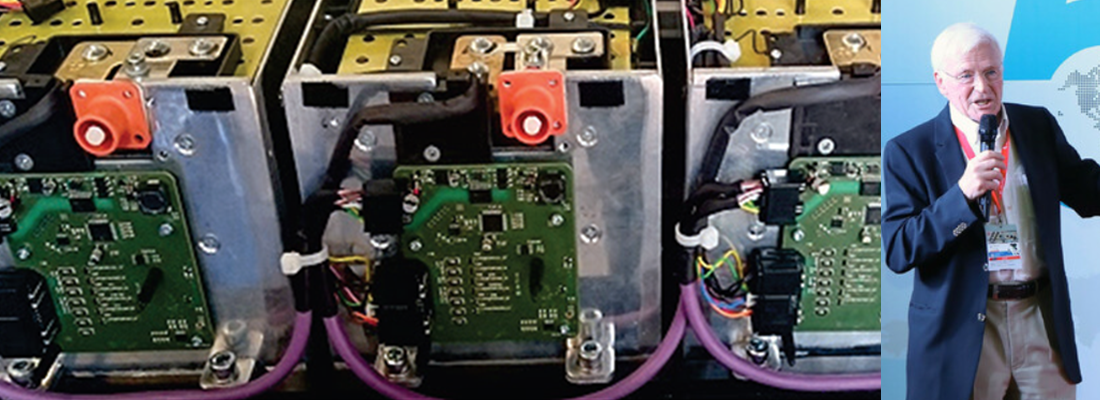Pitch perfect
Getting people interested in buying reman auto parts is a problem that the industry has long wrestled with – but some bright students have provided a new direction, says Adam Hill. Maybe Keanu Reeves could be persuaded…
If you want a fresh perspective, then ask a student. That was Rematec’s approach with the Innovation Challenge, which aimed to find new ideas on improving value delivery in Europe's remanufactured auto parts industry, raising visibility and driving sales.
Jingshu Du (pictured, third from right), assistant professor of strategic management and innovation at VU Amsterdam, hosted the student presentations and a variety of intriguing ideas was on display at Rematec Amsterdam. The winner was Maëlle Le Rudulier from Canada, who impressed the jury with the simplicity of her solution, which involved putting stickerson reman parts to increase their visibility with consumers.
The pitch from Ferdinand de Mol (pictured, centre) was themed around generational marketing, which is the idea of influencing specific age groups by using methods they would best respond to, rather than taking a blanket approach. “It can be utilised to optimise demand for reman parts,” he insisted. “The problem is the majority of European car owners don’t know the term ‘remanufacturing’.
”He adds that, before researching the topic, “I didn’t know the term ‘reman’ and thought of it as second-hand products, inferior.” So the industry has to get to the point of transforming reman parts “from an option that doesn’t exist to one of the best options out there”. So not enough people have heard of it – and if you want to influence people, you need to go to where they go. Mol ran through the various groups that marketers break demographics down into: baby boomers (born between 1946-64), Generation X (1965-80) and Generation Y (the ‘millennials’ 1981-99). Baby boomers are willing to read marketing material, Mol explained, so are open to direct marketing and watch 50 hours or more of TV a week.
Meanwhile, 80% of Generation X is on social media and email is their preferred medium. Generation Y is also active on social media (about 85%) but they tend to be more diverse in their usage, e.g. not just Facebook. They also like watching short video clips. “Get a famous YouTuber on board and get them to review how much they like the product,” Mol suggested.
However, there is also a need to influence the buyers of the future. “To create future demand we need to attract Generation Z, born post-2000,” Mol says. This may not be so easy because “they are desensitised by information overflow”. With that in mind, he explained how US fast food chain Wendy’s – not the most obviously exciting brand - built its Twitter following rapidly to 3.4 million by being smart, funny, and engaging in banter with its rivals and customers. “The younger generation wants to rebel and likes companies that don’t take themselves too seriously,” says Mol. Wendy’s command of Twitter and other channels has made the brand seem fun and relevant. “Influencing culture is not new,” Mol told the audience. “It’s difficult to uphold your image but if you are constantly painted in a good light, they will adore you.” Mol enjoyed the Rematec experience: “The opportunity to speak at the event was amazing, and both the organisation and the jury were very kind and thoughtful in their feedback. Also, the chance of networking with industry leaders after the event proved invaluable to me.”
He finished his Rematec presentation by suggesting that a famous Canadian movie actor, star of the Matrix and John Wick franchises, would be a good frontman for a remanufacturing industry marketing campaign. “Hire Keanu Reeves,” he laughed. Maybe Keanu is just what reman needs: watch this space…






